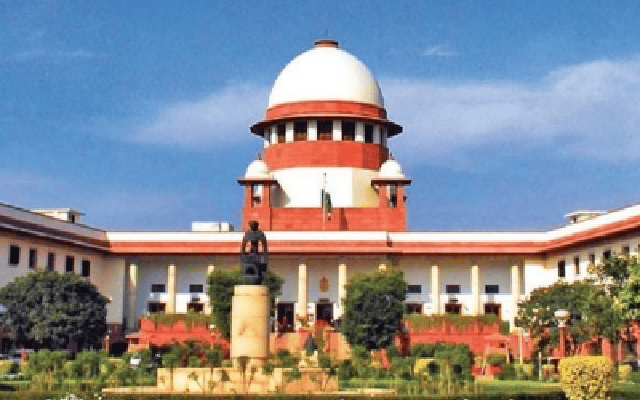New Delhi: India’s 73-year-old Supreme Court holds significant authority, including the power to nullify executive acts, parliamentary laws, and constitutional amendments. It can initiate cases independently, appoint “friends of the court” for assistance, and establish expert panels for decision-making.
Currently, 34 judges handle an overwhelming load of nearly 70,000 appeals and petitions each year, leading to a “court in crisis.” The primary reason is the massive backlog of cases, leaving litigants in limbo and causing financial strain.
The recent work by law scholars reveals compelling findings based on exclusive datasets from over a million Supreme Court cases. Notably, in November 2018, 40% of cases were pending for more than five years, and on average, cases took about 13 years and six months from initiation to disposal. The Court is also facing issues with prioritization, where Special Leave Petitions (SLPs) occupy over 90% of the docket, leading to a lack of attention to constitutional challenges and writ petitions.
The backlog has resulted in “judicial evasion,” as important cases are delayed or not listed at all. For example, the challenge to the Aadhaar biometric ID scheme took five years to decide without suspension orders, significantly affecting its impact. Similarly, the case concerning electoral bonds was not promptly addressed, raising concerns about its constitutional validity.
Critics argue that the court’s focus on mundane cases invites criticism and veers it away from its core goals. The authors advocate for reducing the caseload, suggesting that lower courts handle the majority of cases, while the Supreme Court should only handle those with novel legal issues or to establish clear legal guidelines for future decisions.
India’s three-tier judicial system, including district courts, high courts, and the apex court, also contributes to the problem, with high courts sometimes rendering judgments that require the Supreme Court’s interference in appeal.
With a staggering backlog of more than 50 million cases across all Indian courts, the strained justice system remains slow and burdensome for common people. The Supreme Court must address its backlog and prioritize its institutional goals to effectively deliver justice.




